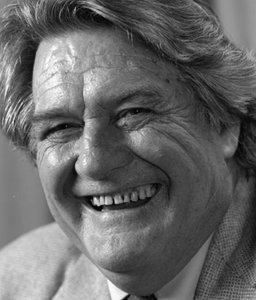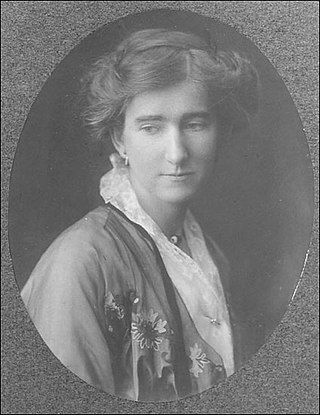
New Zealand literature is literature, both oral and written, produced by the people of New Zealand. It often deals with New Zealand themes, people or places, is written predominantly in New Zealand English, and features Māori culture and the use of the Māori language. Before the arrival and settlement of Europeans in New Zealand in the 19th century, Māori culture had a strong oral tradition. Early European settlers wrote about their experiences travelling and exploring New Zealand. The concept of a "New Zealand literature", as distinct from English literature, did not originate until the 20th century, when authors began exploring themes of landscape, isolation, and the emerging New Zealand national identity. Māori writers became more prominent in the latter half of the 20th century, and Māori language and culture have become an increasingly important part of New Zealand literature.

James Keir Baxter was a New Zealand poet and playwright. He was also known as an activist for the preservation of Māori culture. He is one of New Zealand's most well-known and controversial literary figures. He was a prolific writer who produced numerous poems, plays and articles in his short life, and was regarded as the preeminent writer of his generation. He suffered from alcoholism until the late 1950s. He converted to Catholicism and established a controversial commune at Jerusalem, New Zealand, in 1969. He was married to writer Jacquie Sturm.
Alistair Te Ariki Campbell ONZM was a poet, playwright, and novelist. Born in the Cook Islands, Campbell was the son of a Cook Island Māori mother and a Pākehā father, who both died when he was young, leading to him growing up in a New Zealand orphanage. He became a prolific poet and writer, with a lyrical and romantic style tempered by a darkness borne out of his difficult childhood and struggles with mental health as a young adult. Although he wrote about Māori culture from his earliest works, after a revelatory return to the Cook Islands in 1976, his later works increasingly featured Pasifika culture and themes.

Thomas Allen Monro Curnow was a New Zealand poet and journalist.

Denis James Matthews Glover was a New Zealand poet and publisher. Born in Dunedin, he attended the University of Canterbury where he obtained a Bachelor of Arts, and subsequently lectured. He worked as a reporter and editor for a time, and in 1937 founded the Caxton Press, which published the works of many well-known New Zealand writers of the day. After a period of service in World War II, he and his friend Charles Brasch founded the literary magazine Landfall, which Caxton began publishing in 1947.
Ronald Allison Kells Mason was a New Zealand poet. Described by Allen Curnow as New Zealand's "first wholly original, unmistakably gifted poet", he was born in Penrose, Auckland on 10 January 1905. He was educated at Auckland Grammar School, where he met fellow poet A. R. D. Fairburn. Mason was the holder of the Robert Burns Fellowship at the University of Otago in 1962. He died in Takapuna, Auckland on 13 July 1971.
The Mary and Peter Biggs Award for Poetry is an award at the Ockham New Zealand Book Awards, presented annually to the winner of the poetry category. The winner receives a NZ$10,000 prize.
Nationality words link to articles with information on the nation's poetry or literature.
Links to nations or nationalities point to articles with information on that nation's poetry or literature. For example, United Kingdom links to English poetry and Indian links to Indian poetry.
Ōrongohau | Best New Zealand Poems is an annual online anthology of poems chosen by guest editors. The anthology began in 2001 and is published by the International Institute of Modern Letters at Victoria University of Wellington in New Zealand. It is supported by a grant from Creative New Zealand.

Billy Apple was a New Zealand artist whose work is associated with the London, Auckland and New York schools of pop art in the 1960s and NY's Conceptual Art movement in the 1970s. He worked alongside artists like Andy Warhol and David Hockney before opening the second of the seven New York Not-for-Profit spaces in 1969. His work is held in the permanent collections of Tate Britain, Scottish National Gallery of Modern Art, Philadelphia Museum of Art, Guggenheim Museum, Chrysler Museum of Art, Detroit Institute of Arts, National Gallery of Australia, Te Papa, Auckland Art Gallery, the Christchurch Art Gallery, the University of Auckland, and the Stedelijk Museum voor Actuele Kunst in Belgium.
William Kendrick Smithyman was a New Zealand poet and one of the most prolific of that nation's poets in the 20th century.
Niel Wright is a New Zealand poet, literary critic, bibliographer, publisher, and cultural and political commentator. His major piece of work is his epic poem The Alexandrians, self published in 120 books between 1961 and 2007 and totaling some 36,000 lines. He has since self published 1045 post-Alexandrian poems totaling 8331 lines, of which 681 are triolets. He has also published extensive notes to The Alexandrians.

Louis Albert Johnson was a New Zealand poet.
The Katherine Mansfield Menton Fellowship, formerly known as the New Zealand Post Katherine Mansfield Prize and the Meridian Energy Katherine Mansfield Memorial Fellowship, is one of New Zealand's foremost literary awards. Named after Katherine Mansfield, one of New Zealand's leading historical writers, the award gives winners funding towards transport to and accommodation in Menton, France, where Mansfield did some of her best-known and most significant writing.
Mark Pirie is a New Zealand poet, writer, literary critic, anthologist, publisher, and editor. He is best known for his Generation X New Zealand anthology The NeXt Wave, which included an 8,000-word introduction (1998), the literary journals JAAM and broadsheet, a book cover photo series of tributes to famous rock albums, and the small press HeadworX Publishers in Wellington, New Zealand.

Mary Ursula Bethell, was a New Zealand poet. She settled at the age of 50 at Rise Cottage on the Cashmere Hills near Christchurch, with her companion Effie Pollen, where she created a sheltered garden with views over the city and towards the Southern Alps, and began writing poems about the landscape. Although she considered herself "by birth and choice English", and spent her life travelling between England and New Zealand, she was one of the first distinctively New Zealand poets, seen today as a pioneer of its modern poetry.

Wystan Tremayne Le Cren Curnow is a New Zealand art critic, poet, academic, arts administrator, and independent curator. He is the son of Elizabeth Curnow, a painter and printmaker, and poet Allen Curnow.
Robyn Curnow is a South African journalist, broadcaster, and author. She was an anchor and foreign correspondent for CNN International and CNN USA.
Heather Avis McPherson was a feminist poet, publisher and editor who played a key role in supporting women artists and writers in New Zealand. In 1976, she founded the Spiral Collective group and Spiral, a women's arts and literary journal that later published monographs. Her poetry book A Figurehead: A Face (1982) was the first book of poetry published in New Zealand by an openly lesbian woman. She published three further collections during her lifetime, and an additional two collections were published posthumously by fellow Spiral members.








